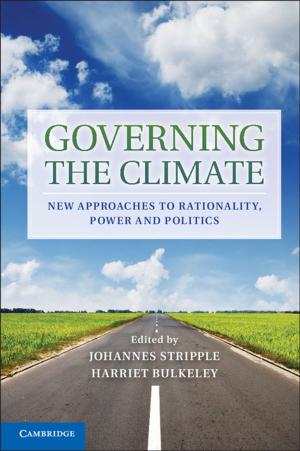Global Climate Governance Beyond 2012
Architecture, Agency and Adaptation
Nonfiction, Social & Cultural Studies, Political Science, Government, Public Policy, Reference & Language, Law, Business & Finance| Author: | ISBN: | 9781139209014 | |
| Publisher: | Cambridge University Press | Publication: | February 18, 2010 |
| Imprint: | Cambridge University Press | Language: | English |
| Author: | |
| ISBN: | 9781139209014 |
| Publisher: | Cambridge University Press |
| Publication: | February 18, 2010 |
| Imprint: | Cambridge University Press |
| Language: | English |
An assessment of policy options for future global climate governance, written by a team of leading experts from the European Union and developing countries. Global climate governance is at a crossroads. The 1997 Kyoto Protocol was merely a first step, and its core commitments expire in 2012. This book addresses three questions which will be central to any new climate agreement. What is the most effective overall legal and institutional architecture for successful and equitable climate politics? What role should non-state actors play, including multinational corporations, non-governmental organizations, public–private partnerships and market mechanisms in general? How can we deal with the growing challenge of adapting our existing institutions to a substantially warmer world? This important resource offers policy practitioners in-depth qualitative and quantitative assessments of the costs and benefits of various policy options, and also offers academics from wide-ranging disciplines insight into innovative interdisciplinary approaches towards international climate negotiations.
An assessment of policy options for future global climate governance, written by a team of leading experts from the European Union and developing countries. Global climate governance is at a crossroads. The 1997 Kyoto Protocol was merely a first step, and its core commitments expire in 2012. This book addresses three questions which will be central to any new climate agreement. What is the most effective overall legal and institutional architecture for successful and equitable climate politics? What role should non-state actors play, including multinational corporations, non-governmental organizations, public–private partnerships and market mechanisms in general? How can we deal with the growing challenge of adapting our existing institutions to a substantially warmer world? This important resource offers policy practitioners in-depth qualitative and quantitative assessments of the costs and benefits of various policy options, and also offers academics from wide-ranging disciplines insight into innovative interdisciplinary approaches towards international climate negotiations.















